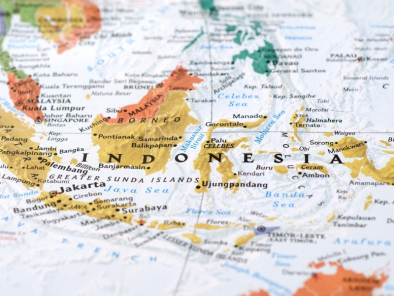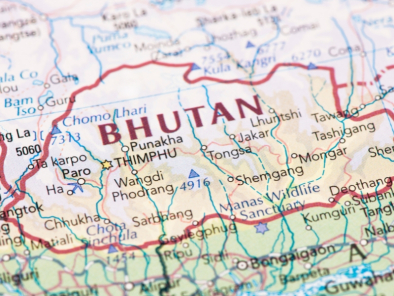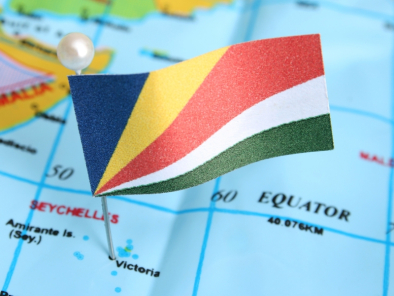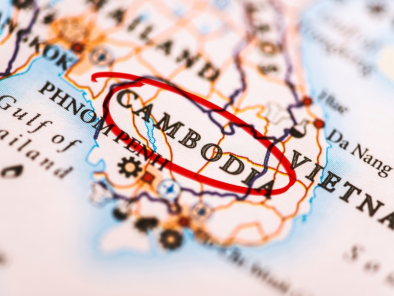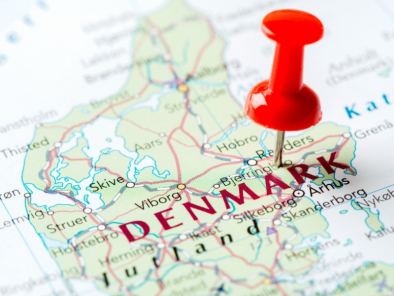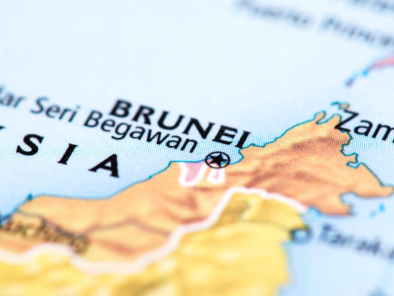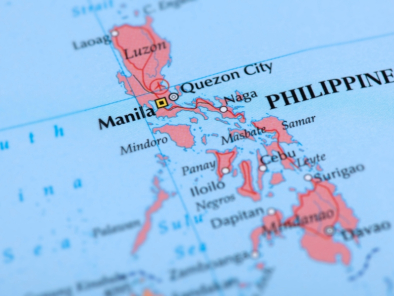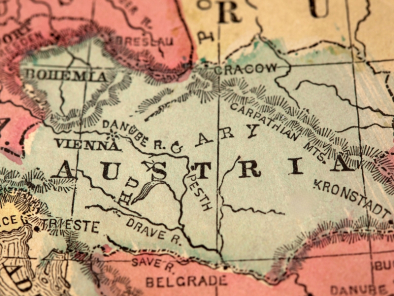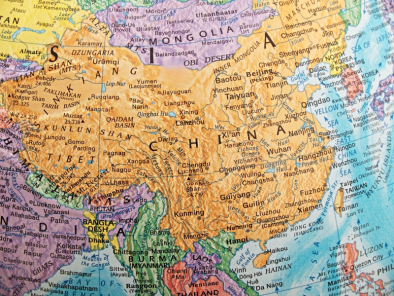
Posted by: Leo travel hub
Fiji, a
South Pacific archipelago of over 330 islands, is renowned for its turquoise
waters, coral reefs, and warm Polynesian hospitality. For Leo Travel Hub
clients seeking luxury, adventure, or cultural immersion, Fiji offers
unparalleled experiences. Below is a comprehensive guide covering currency,
power sockets, local cities and attractions, clothing, visa requirements, and
other essential travel tips.
Currency
- Official
Currency: Fijian Dollar (FJD or FJ$), denoted by the
"$" symbol or "FJ$" to distinguish it from other
dollar-based currencies.
- Cash
Recommendations:
- Carry
small denominations (FJD 5, 10, 20) for markets, small shops, and rural
areas where card payments are uncommon.
- US
Dollars (USD) or Australian Dollars (AUD) are sometimes accepted in
tourist areas but exchange them for FJD for better rates.
- Maximum
cash limit: Declare amounts exceeding FJD 10,000 (or equivalent) at entry
to comply with customs regulations.
- Payment
Options:
- Credit
Cards: Visa and Mastercard are widely accepted in
hotels, resorts, and major restaurants in Suva, Nadi, and tourist hubs
like Denarau. American Express is less common. A 3–5% surcharge may
apply.
- ATMs:
Available in urban areas (Suva, Nadi, Lautoka) and some resorts. ANZ,
Westpac, and BSP banks offer reliable ATMs, but fees (FJD 5–10 per
transaction) may apply for foreign cards. Rural areas have limited ATM
access, so carry cash for outer islands.
- Digital
Payments: Mobile apps like M-PAiSA are used locally
but not practical for tourists. Stick to cash or cards.
- Exchange:
- Exchange
currency at banks (e.g., ANZ, Westpac) or licensed exchange offices in
Nadi International Airport, Suva, or Denarau for competitive rates. Avoid
street vendors due to scam risks.
- Resorts
and hotels offer exchange but at less favorable rates.
- Tip:
Spend all FJD before leaving, as it’s not widely convertible outside Fiji.
Keep a few coins or notes as souvenirs.
Power Sockets
- Voltage:
220–240 volts, 50 Hz.
- Socket
Type:
Type I (three-pin, angled flat pins, commonly used in Australia and New
Zealand).
- Recommendations:
- Bring
a universal adapter for Type I sockets, as most hotels and resorts cater
to international plugs but may not have spares.
- Power
outages are rare in urban areas and major resorts but possible on outer
islands. Carry a portable charger for phones and cameras.
- Resorts
often have backup generators, but budget accommodations may not.
- Note:
Use surge protectors for sensitive electronics, as voltage fluctuations
can occur in remote areas.
Local Cities and Attractions
Fiji’s
islands offer a mix of urban vibrancy, tropical beaches, and cultural heritage.
Below are key destinations and their top attractions:
- Suva
(Capital City, Viti Levu)
- Attractions:
- Fiji
Museum: Explore Fiji’s history, from ancient
Lapita pottery to colonial artifacts (Entry: ~FJD 7).
- Colo-i-Suva
Forest Park: Rainforest trails, waterfalls, and
swimming holes for nature lovers.
- Municipal
Handicraft Market: Shop for traditional kava bowls, masi
cloth, and carvings.
- Thurston
Gardens: A serene botanical garden near the museum.
- Why
Visit: Suva is Fiji’s cultural and political hub,
offering urban experiences, markets, and dining (try lovo feasts at local
restaurants).
- Nadi
(Western Viti Levu, International Gateway)
- Attractions:
- Sri
Siva Subramaniya Temple: A colorful South
Indian-style Hindu temple, the largest in the Southern Hemisphere.
Modest dress required.
- Garden
of the Sleeping Giant: Orchids and tropical plants at the base of
the Nausori Highlands.
- Denarau
Island: A luxury resort hub with golf courses,
marinas, and dining (e.g., Bonefish Seafood Restaurant).
- Sabeto
Hot Springs and Mud Pool: Relax in natural thermal
pools and mud baths.
- Why
Visit: Nadi is the main entry point, blending
cultural sites with easy access to island-hopping tours.
- Lautoka
(Western Viti Levu)
- Attractions:
- Lautoka
Sugar Mill: Learn about Fiji’s sugar industry, a
historical economic driver.
- Koroyanitu
National Heritage Park: Hiking trails with waterfalls and Fijian
village visits.
- Lautoka
Market: A bustling spot for fresh produce and
local crafts.
- Why
Visit: Known as the “Sugar City,” Lautoka offers a
quieter alternative to Nadi with authentic Fijian life.
- Mamanuca
Islands (Near Nadi)
- Attractions:
- Cloud
9:
A floating bar with pizzeria and water sports, perfect for day trips.
- Malolo
Island: Snorkeling, kayaking, and luxury resorts
like Six Senses Fiji.
- Monuriki
Island: Famous as the filming location for Cast
Away.
- Why
Visit: Ideal for beach lovers and water
activities, with easy day trips from Nadi/Denarau.
- Yasawa
Islands (Northwest of Viti Levu)
- Attractions:
- Sawa-i-Lau
Caves: Limestone caves with swim-through
chambers, a bucket-list adventure.
- Blue
Lagoon: Crystal-clear waters for snorkeling and
diving.
- Barefoot
Kuata Resort: Budget-friendly eco-lodge with shark
snorkeling.
- Why
Visit: Remote and pristine, the Yasawas offer
luxury and backpacker options with fewer crowds.
- Taveuni
(Northern Fiji, “Garden Island”)
- Attractions:
- Bouma
National Heritage Park: Home to Tavoro Waterfalls and hiking
trails.
- Lavena
Coastal Walk: A scenic trail along black sand beaches
and coral reefs.
- Waitabu
Marine Park: Snorkel in a protected marine reserve.
- Why
Visit: Taveuni is a diver’s and hiker’s paradise
with lush rainforests and vibrant marine life.
- Vanua
Levu (Northern Fiji)
- Attractions:
- Savusavu:
A yachting hub with hot springs and pearl farms.
- Namenalala
Island: Dive with sharks and manta rays in the
Namena Marine Reserve.
- Waisali
Rainforest Reserve: Spot rare birds and cascading waterfalls.
- Why
Visit: Less touristy, offering authentic Fijian
culture and adventure.
- Travel
Tip:
Book island transfers (ferries, seaplanes, or helicopters) through Leo
Travel Hub or operators like South Sea Cruises for seamless travel to
Mamanucas or Yasawas. Domestic flights to Taveuni or Vanua Levu are
available via Fiji Airways.
Clothing
- General
Guidelines: Fiji’s tropical climate and relaxed island
culture call for lightweight, breathable clothing, but modesty is
appreciated in villages and urban areas.
- Recommended
Attire:
- Daytime:
Light cotton or linen shirts, shorts, and dresses. Swimwear with
cover-ups (e.g., sarongs) for beaches and resorts.
- Water
Activities: Rash guards, board shorts, and water shoes
for snorkeling, diving, or kayaking to protect against coral and sun.
- Village
Visits: Long skirts or pants and shoulder-covering
tops (e.g., T-shirts) for both men and women. Avoid revealing clothing
like tank tops or short shorts.
- Evening:
Casual resort wear (collared shirts, sundresses) for dining. Some upscale
restaurants (e.g., Vomo Island Resort) may require smart-casual attire.
- Hiking:
Lightweight trekking pants, moisture-wicking shirts, and sturdy sandals or
hiking boots for trails like Tavoro Waterfalls.
- Accessories:
- Wide-brimmed
hat, sunglasses, and reef-safe sunscreen (SPF 30+) to protect against
intense UV rays.
- Lightweight
rain jacket or umbrella for sudden showers, especially in the wet season.
- Seasonal
Tips:
- Dry
Season (May–October): Cooler (20–28°C), ideal for light clothing
and minimal rain gear.
- Wet
Season (November–April): Hotter (24–31°C) and humid with frequent
rain. Pack quick-dry clothing and waterproof bags for electronics.
- Note:
Pack a reusable tote for shopping or beach trips. Flip-flops are
acceptable but avoid wearing them in villages or upscale venues.
Visa and Entry Requirements
- Visa:
- Visa-Free
Entry: Citizens of over 100 countries, including
the USA, Canada, UK, Australia, New Zealand, India, and most EU nations,
can enter visa-free for up to 4 months for tourism. Check the Fiji
Immigration website for the full list.
- Visa
on Arrival: Not typically required for tourist visits,
but nationals of countries not on the visa-free list (e.g., some African
or Middle Eastern nations) must apply for a visitor visa in advance via a
Fijian embassy or online. Cost: ~FJD 90.
- Requirements:
- Passport
valid for at least 6 months beyond entry date.
- Proof
of onward/return ticket.
- Proof
of sufficient funds (e.g., bank statement or credit card).
- Accommodation
details (e.g., Leo Travel Hub booking confirmation).
- Indian
Nationals: Visa-free for up to 4 months. Carry a
passport or, for short stays, a voter ID (though passport is preferred).
- Customs
Regulations:
- Declare
food, plants, or animal products to avoid fines, as Fiji protects its
ecosystem.
- Alcohol
limit: 2 liters of liquor or 4 liters of wine/beer per adult.
- Prohibited
items: Firearms, drugs, and non-prescription medications.
- Entry
Points:
- Air:
Nadi International Airport (primary hub) or Nausori Airport (near Suva).
Airlines include Fiji Airways, Qantas, and Air New Zealand.
- Sea:
Cruise ships or yachts enter via Suva or Lautoka ports.
- Tip:
Pre-arrange airport transfers through Leo Travel Hub or resorts, as
taxis at Nadi Airport can be expensive (FJD 20–50 to Denarau).
Other Important Points to Take Care Of
- Local
Etiquette:
- Village
Protocols: If visiting a Fijian village, participate
in a sevusevu ceremony (presenting kava root to the chief). Dress
modestly, remove hats/sunglasses, and avoid touching heads. Ask
permission before photographing locals.
- Greetings:
Use “Bula” (hello) and “Vinaka” (thank you) to connect with locals. A
smile goes a long way.
- Respect:
Avoid loud behavior in public spaces and respect sacred sites (e.g.,
temples or burial grounds). Public displays of affection are frowned upon
outside resorts.
- Kava
Ceremonies: If invited, accept kava politely (clap
once, drink in one gulp, clap twice). It’s mildly narcotic but safe.
- Health
and Safety:
- Water:
Drink bottled water (e.g., Fiji Water, widely available). Tap water is
safe in major resorts but avoid it in rural areas.
- Food:
Enjoy local dishes like kokoda (marinated fish in coconut milk) or
palusami (taro leaves in coconut cream). Be cautious with street food to
avoid stomach issues.
- Sun
Protection: Fiji’s UV index is high year-round. Reapply
reef-safe sunscreen frequently and stay hydrated.
- Marine
Safety: Watch for strong currents and jellyfish.
Use reef shoes to avoid coral cuts. Follow dive operator instructions for
scuba safety.
- Medical
Supplies: Carry medications (e.g., anti-diarrhea,
antihistamines) as pharmacies are limited outside Suva/Nadi. Major
resorts have clinics; hospitals are in Suva and Lautoka. Travel insurance
with medical evacuation is recommended.
- Safety:
Fiji is safe, but petty theft occurs in crowded areas like Nadi markets.
Secure valuables and avoid walking alone at night in urban areas.
- Transportation:
- Inter-Island
Travel:
- Ferries:
South Sea Cruises or Awesome Adventures Fiji offer daily transfers to
Mamanucas/Yasawas (FJD 80–150 one-way).
- Flights:
Fiji Airways or Northern Air serve Taveuni, Vanua Levu, and other
islands (FJD 150–400).
- Seaplanes/Helicopters:
Turtle Airways or Pacific Island Air provide scenic transfers to remote
resorts (FJD 500–1000).
- On-Island:
Taxis (FJD 2/km) and buses (FJD 1–5) are affordable in Viti Levu. Rent
cars (FJD 100–200/day) for flexibility, but drive cautiously due to
narrow roads and livestock.
- Tip:
Pre-book transfers for outer islands, as schedules are limited.
- Shopping
and Souvenirs:
- Recommended
Items: Masi (tapa cloth), sulu (Fijian sarong),
black pearls, and hand-carved tanoa bowls. Avoid coral or turtle shell
products, as their export is illegal.
- Markets:
Suva’s Municipal Market and Nadi’s handicraft stalls offer authentic
goods. Bargaining is acceptable but gentle.
- Duty-Free:
Available at Nadi Airport for alcohol, perfumes, and electronics. Compare
prices, as local shops may be cheaper for crafts.
- Connectivity:
- SIM
Cards: Purchase a Vodafone or Digicel SIM at Nadi
Airport or urban stores (FJD 10–20 for 5GB data, valid 7 days). Top-ups
are widely available.
- Wi-Fi:
Free in most resorts and cafes but slow on outer islands. Data is more
reliable than Wi-Fi for remote areas.
- Tip:
Download offline maps (e.g., Maps.me) for navigation on smaller islands.
- Tipping:
- Not
customary but appreciated in tourist areas. Tip 5–10% (FJD 5–10) for
exceptional service in restaurants or for guides/drivers. Many resorts
have a staff Christmas fund for group tips (FJD 20–50 per stay).
- Photography:
- No
restrictions on outdoor photography, but ask permission in villages or
for portraits. Drones require a permit from the Civil Aviation Authority
of Fiji.
- Use
waterproof cameras or housing for underwater shots in dive sites like the
Yasawas.
- Festivals
and Events:
- Hibiscus
Festival (Suva, August): A week of parades, music, and cultural
displays.
- Diwali
(October/November): Vibrant celebrations, especially in Nadi
and Suva.
- Bula
Festival (Nadi, July): Food, dance, and Fijian traditions.
- Tip:
Book accommodations early for festival periods via Leo Travel Hub.
- Sustainable
Tourism:
- Support
Fiji’s eco-initiatives by choosing resorts with sustainability
certifications (e.g., Jean-Michel Cousteau Resort).
- Use
reef-safe sunscreen to protect coral reefs and avoid single-use plastics.
- Engage
with local communities through village tours or homestays for authentic
experiences.
- Best
Time to Visit:
- Dry
Season (May–October): Cooler (22–29°C), less humidity, ideal for
diving and beach activities. Peak season, so book early.
- Wet
Season (November–April): Warmer (25–32°C), higher rainfall, but
fewer crowds and lower rates. Best for lush landscapes and budget travel.
- Note:
Cyclone season (November–April) brings occasional storms. Monitor weather
via the Fiji Meteorological Service.
Final Tips
- Plan
with Leo Travel Hub: Book through accredited operators for
curated packages, including luxury stays in the Yasawas, diving in
Taveuni, or cultural tours in Suva.
- Stay
Flexible: Island transfers and domestic flights can be
delayed due to weather. Include buffer days in your itinerary.
- Immerse
Locally: Join a kava ceremony, attend a meke
(traditional dance), or visit a village to connect with Fijian culture.
- Pack
Smart:
Include a dry bag for water activities, insect repellent (mosquitoes are
common in the wet season), and a first-aid kit.
Fiji’s
blend of tropical beauty, adventure, and cultural warmth makes it a dream
destination. By preparing thoughtfully and respecting local customs, you’ll
create unforgettable memories in this Pacific paradise. For bookings or
tailored itineraries, contact Leo Travel Hub
+91 905
234 3030
+91 77 99 00 6591

